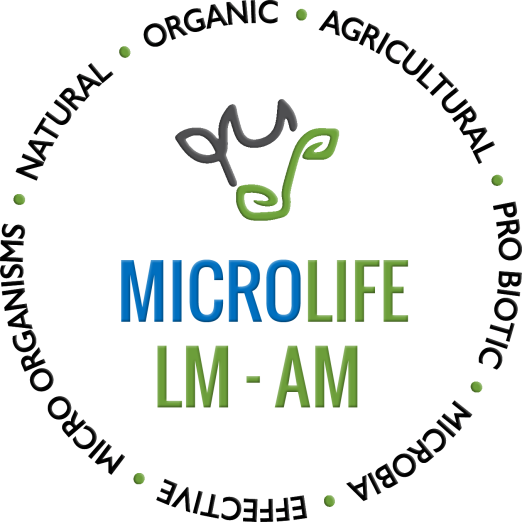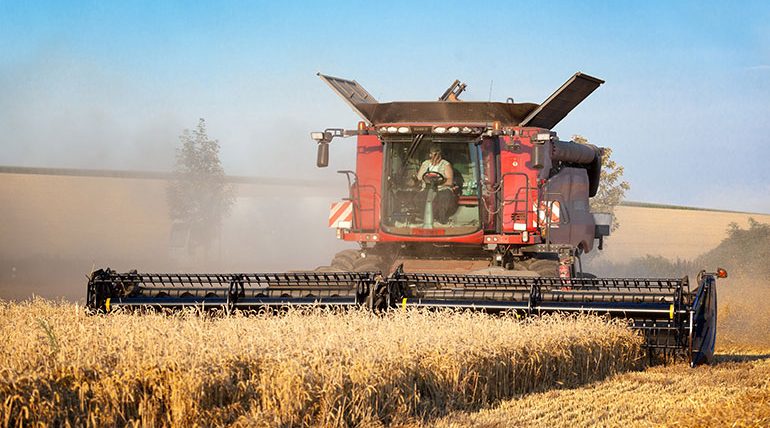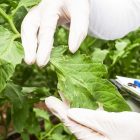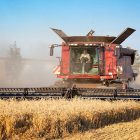Eco-farming combines modern science and innovation with respect for nature and biodiversity. It ensures healthy farming and healthy food. It protects the soil, the water and the climate. It does not contaminate the environment with chemical inputs or use genetically engineered crops. And it places people and farmers—consumers and producers, rather than the corporations who control our food now—at its very heart.
It is a vision of sustainability and food sovereignty in which food is grown with health and safety first and where control over food and farming rests with local communities, rather than transnational corporations.
Seven Basic Principles of Eco-Farming
- Food sovereignty: Producers and consumers, not corporations, should control the food chain and determine how food is produced.
- Rewarding rural livelihoods: Eco-agriculture is instrumental in rural development, food security and fighting poverty.
- Smarter food production and yields: Eco-agriculture can create higher yields to help feed the world.
- Biodiversity: Promoting diversity in crops, instead of mono-cultures like corn and soy, is essential to protecting nature.
- Sustainable soil: Soil fertility can improve using eco-farming methods and refraining from chemical fertilizers and inputs.
- Ecological pest protection: Farmers can control pest damage and weeds effectively through natural means instead of chemical pesticides.
- Food Resilience: Diverse and resilient agriculture, not mono-culture crops, is the best way to protect communities from shocks from climate and food prices.
The benefits or ecological farming
Ecological products are healthier since they are free from persistent toxic waste from pesticides, insecticides, antibiotics, synthetic fertilizers, additives and preservatives, many of which are used in conventional agriculture to eliminate insects or pests and fight diseases and to add color (like in the case of apples, oranges, etc.) On the medium or long term such produce can have negative effects on human health. Since they don’t contain artificial substances, the foods from ecological farming are assimilated correctly by the organism without altering the metabolic functions. According to nutritionists, most degenerative diseases have their origin in food.
Another characteristic of ecological farming is that, when growing food in balanced soils by natural fertilizers, the products are more nutritious because they contain higher levels of vitamins, essential minerals, antioxidants, carbohydrates and proteins.
Ecological foods don’t contain synthetic additives that can cause health problems such as heart failure, osteoporosis, migraines, allergies, hyperactivity, Parkinson’s, etc. It is noteworthy that biological products, grown without the use of agrochemicals, while respecting the natural rhythms and without additives, are balanced and very rich in nutrients. On the other hand, different studies have shown that it’s not essential to incorporate synthetic substances in the culture or production of food or its subsequent conservation. There is no need to look for products out of season to meet the nutritional needs of our body.
Hundreds of chemical pesticides are commonly used in conventional agriculture which causes residues of pesticide to appear in the food from this agriculture that we ingest daily. Different toxicological studies show the relationship between pesticides and certain pathologies such as cancer, allergies and asthma.
The use of pesticides is also detrimental to the health of the agricultural worker, a serious problem especially in developing countries where pesticide use is poorly regulated. On the other hand, in Europe the high toxicity of certain substances such as glyphosate has been hidden.
At the same time, the use of these substances damages the environment and entails an additional cost to society, since the residues that pesticides leave in the wild must be eliminated.
Respecting the environment is one of the advantages of ecological products. When farmers grow ecological crops, they take part in the conservation of the environment and avoid contamination of land, water and air.
Ecological farming is the most respectful of wildlife, because it produces a lower pollution of aerosols, it produces less carbon dioxide, it prevents the greenhouse effect, it doesn’t generate polluting waste and helps make energy savings, since in the cultivation and in the production of the products it takes advantage of the maximum of renewable resources.
It should be noted that the decline of biological diversity is one of the main environmental problems of today. Ecological farming preserves the seeds for the future, thus preventing the disappearance of some crops varieties of great nutritional and cultural value.





